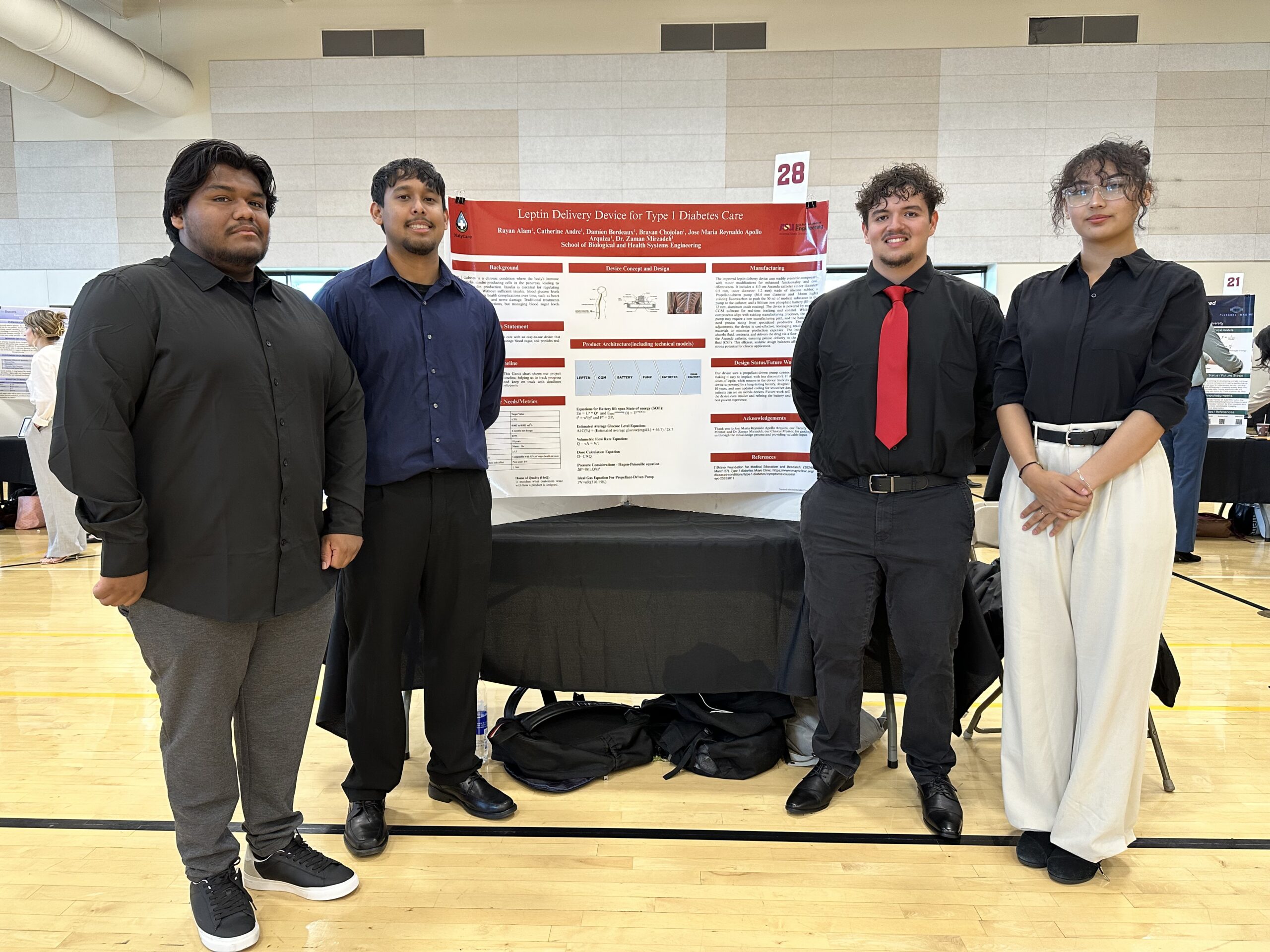
Leptin Infusion for Type 1 Diabetes
Biomedical Engineering
Rayan Alam, Catherine Andre, Damien Berdeaux, and Brayan Chojolan
Abstract
We aim to ensure the leptin delivery system targets patients with type 1 diabetes, aiming to reduce systemic dosage delivery and benefit patients. Determine to lessen the long-term healthcare costs of preventing diabetes; this project promises improvements in patients’ overall health. Looking into the type 1 diabetes market is valued at $15.95 billion in 2024 and is projected to grow to $24.36 billion by 2031, with an annual growth rate of 6.2%. This growth demonstrates an economic impact and clinical effort for a need for cost-effective treatments. Our device offers fewer complications than other products may induce and fewer hospitalizations. Our design features an Ascenda catheter connected to an osmotic pump with sensors. These sensors are encoded using CGM software that enables real-time tracking of catheter flow rate and precise delivery of leptin to the cerebrospinal fluid. Since the osmotic pump will likely not be powered by an external component, other focuses will be allowed to be powered. We proposed a lithium battery lasting up to 10 years, ensuring longevity and a reliable power source.
For manufacturing, we will use high-grade biocompatible materials such as titanium for the external components. While these materials are expensive, they ensure the safety and durability of components. The electronics and battery are moderately priced, and software development is still in the doable range. Despite these costs, our device is determined to be more cost-effective than existing market options, priced around $24-34k, including surgical procedures, while the device itself is $599. With the expectation of insurance coverage, the cost for patients will be reduced, ensuring a cost-effective treatment. The lower per-patient supply cost compared to traditional delivery methods ensures a strong return on investment for investors. This project provides an effective solution for managing type 1 diabetes, combining up-to-date technology that is cost-effective yet reliable sources to improve patient care and outcomes.
Video
Research poster
Health
